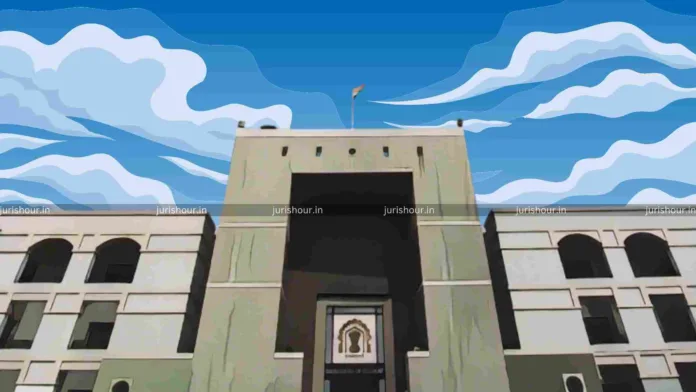The income tax department got the backing from the Gujarat High Court on reopening old assessments under new regime.
The bench of Justice Bhargav D. Karia and Justice Pranav Trivedi disposed of a batch of writ petitions challenging income tax reassessment notices for Assessment Years 2013-14 to 2017-18, holding that the impugned notices and subsequent reassessment actions are valid in law.
The decision marks an important application of the Supreme Court’s rulings in Union of India v. Ashish Agarwaland Union of India v. Rajeev Bansal on reassessment procedures post the Finance Act, 2021.
The petitioners, including individuals and a private company, had filed separate writ petitions challenging reassessment notices issued under Section 148 and orders under Section 148A(d) of the Income Tax Act, 1961.
The reassessment proceedings were triggered based on searches and financial transactions that were alleged to be suspicious or unreported, leading to escaped income. The primary contentions raised were:
The petitioners contended that the reassessment notices were issued beyond the permissible time limits under Section 149(1)(b), especially after the amendment by the Finance Act, 2021. The notices, it was argued, lacked appropriate sanction as per the revised requirements of Section 151. The effect of the Taxation and Other Laws (Relaxation and Amendment of Certain Provisions) Act, 2020 (“TOLA”) was also central to the debate.
After several High Courts had earlier quashed reassessment notices issued under the old regime post-April 1, 2021, the Supreme Court in Ashish Agarwal (2022) exercised powers under Article 142 and allowed those notices to be deemed as valid under the new regime (Section 148A), directing Revenue to follow the new procedure.
Subsequently, in Rajeev Bansal (2024), the Apex Court clarified the application of TOLA, the amended time limits, and sanctioning authorities under the new regime. It settled the confusion around whether notices issued under the old regime, relying on TOLA, could survive post-April 1, 2021.
The Gujarat High Court meticulously traced the legislative and judicial developments:
Amendments via Finance Act, 2021: Sections 147 to 151 were substantially overhauled, introducing procedural safeguards including the issuance of show cause notices under Section 148A(b).
Application of TOLA: The Court acknowledged that TOLA extended time limits for actions due between March 20, 2020, and March 31, 2021, to June 30, 2021. This, however, did not revive the “old regime” for reassessment beyond March 31, 2021.
SC’s Binding Clarification in Rajeev Bansal: The Supreme Court had categorically held that for AY 2013-14 to 2015-16, reassessment notices issued after April 1, 2021, would be barred unless the income escaping assessment exceeded ₹50 lakhs and proper sanction from the specified higher authorities was obtained.
Individual Case Findings:
- SCA No. 6387/2023 (AY 2013–14) – The petitioner had previously filed returns, but the reassessment was based on a substantial credit transaction linked to a cooperative society. The notice and order under the new regime were held valid, in line with Ashish Agarwal compliance.
- SCA No. 5688/2023 (AY 2014–15) – The petitioner had failed to file returns and was alleged to have sold immovable property worth over ₹93 lakhs. Though the petitioner claimed unawareness of the portal notice, the Court noted that proper procedure under Section 148A was followed, and the matter fell within the ten-year window for high-value escapement cases.
- SCA No. 22260/2022 (AY 2016–17) – The reassessment was initiated on grounds of escapement of over ₹1.2 crores. Given the notice and sanction were within the permissible three-year limit under Section 149(1)(a), the Court found no procedural defect.
- SCA No. 996/2023 (AY 2017–18) – The petitioner company had already been assessed under Section 143(3), but reassessment was triggered by new information. The notice under Section 148A(b) and subsequent order under 148A(d) were issued within extended time and with appropriate sanction.
The Gujarat High Court dismissed all petitions, upholding the validity of reassessment notices and orders, emphasizing that they complied with Supreme Court-mandated procedures and timelines under the new regime.
The judgment represents a crucial affirmation of the department’s stance in reassessment matters post-2021 reforms and underscores the judiciary’s commitment to balancing procedural fairness with public interest in tax recovery.
Case Details
Case Title: Dhanraj Govindram Kella Versus Income Tax Officer, Ward (2)
Case No.: R/Special Civil Application No. 6387 Of 2023
Date: 08/07/2025
Counsel For Petitioner: Hiren J Trivedi
Counsel For Respondent: Mr Varun K Patel, Ms Maithili D Mehta And Mr Karan Sanghani, Senior Standing Counsel
Read More: ED Raids 12 Locations in Rs. 750 Crore Fake ITC Scam Across Jharkhand, West Bengal, Maharashtra



